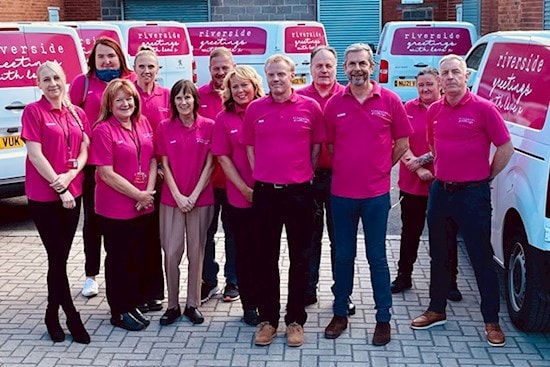Andrew Glen, MD of Riverside Greetings, said: “Many small businesses struggle to access the resources they need to innovate effectively and at scale. By participating in a Knowledge Transfer Partnership we’ve been able to work closely with a team at Leeds Beckett University who have helped us to develop this initiative.”
The team has created an automated inventory and category management system combining AI with RFID technology to analyse and increase the performance of greeting cards – whilst significantly improving the productivity and effectiveness of Riverside’s merchandising service.
The new, patent pending, technology, is now being piloted in several test stores in England. It will allow merchandisers to complete a full stock count of hundreds of cards by design in less than two minutes, with 100% accuracy – versus the current manual counting system which can take 30 to 45 minutes.
Mr Glen said: “The project is innovative in a number of ways: firstly, because it employs RFID with relatively low value items; and secondly because it will utilise tags close to each other. This revolutionary new technology is going to provide us with real-time information and transform the overall performance of greetings cards in the sector.
“We are very excited about this new approach. Our conservative estimate for the scale of the opportunity for the sector measures it at £25 million, a sales figure which will generate about £12.5 million of incremental profit for retailers.”
Dr Akbar Sheikh Akbari, Reader in the School of Built Environment, Engineering and Computing at Leeds Beckett University, said: “I am delighted with the transformative level of innovation and efficiency provided through the combination of AI and RFID technology in facilitating greeting cards delivery. Benefits include: efficient management of card stocks in shops, delivery vans, and production lines; reduced costs; reduced waste; increased accuracy; and a reduced carbon footprint.”
Riverside Greetings estimate that this new approach will grow sales with existing customers by more than 20%. Riverside’s operational model provides consignment stock for retailers who then only pay for what they sell, which means that they don’t have cash tied up in stock.



